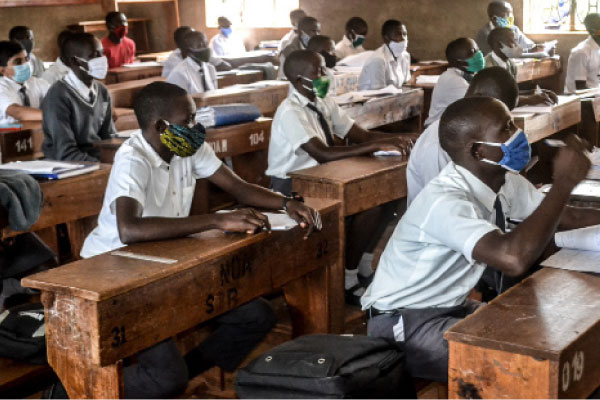Why we need to reconsider an afrocentric education

Facts are told, Africa is the wealthiest continent on the planet earth as most of the resources of the world are under her ground. Africa has the resources but has not been able to acquire the skill to make world to work for her. She is depicted as a hungry and poverty-stricken continent, but potentially Africa has enough resources to survive! From the vast and expansive lands, the fertile soils, good climate, the strong, energetic and resilient people, Africa has enough resources to compete and grow like any other continent.
Looking at the way things are, there is something that Africa needs especially in her education system. Education on the continent needs to help people learn about who they are, what resources they have, and how they can use the resources available to them for their human development. It is such an education that starts from self-awareness, and self-appreciation that can release creative juices that can respond to the needs of the continent.
Africa as a continent is said to have taken a wrong turn the moment the colonialists stepped foot on the continent. Long after gaining independence, not much has changed economically partly because the colonial legacy still haunts the ‘independent’ continent.
One of the long lasting effects of colonialism is a Eurocentric curriculum taught in African schools. To authentically decolonise Africa, the curriculum will have to be revised and Africanised. Students on average spend over 12 years in school but get out with a minimal functional skills set.
An education that is predominantly theoretical and does not respond to existing social challenges has something seriously wrong with it. While abstract theoretical education has its own place and value, such an education is still a privilege in Africa given the existing challenges that need practical solutions.
An additional challenge with a Eurocentric education is that it produces people who know little about themselves, barely appreciate who they are, and have a low opinion of their culture. Some Pan-African scholars have argued that a Eurocentric education is designed and programmed to distort the African perception of themselves and their society right from a young people.
Such a mindset partly explains the worship of visas of Western countries, and the desire of thousands of people to leave the continent and emigrate to the western countries. Africa is presented as “hell” while Western countries that are painted as “heaven.” While there are things that can be learned from the West, there is a lot too of great value on the continent. For instance in the past, Africans didn’t need formal education to learn about values such as honesty, kindness, or generosity. These were already rooted in the African culture. But currently such values are lacking due to an ideological and Eurocentric formal education that is predominantly individualistic and places things above people.
Curriculum development on the continent will have to be done in new ways that decenter Europe, and center Africa. The needs of the African student and the challenges of the continent will have to be the drivers of curriculum development. Such a shift in approach has greater potential of responding to local needs and attending to the African agenda.
Bogere Seezi
Researcher and Consultant
National Curriculum Development Centre




